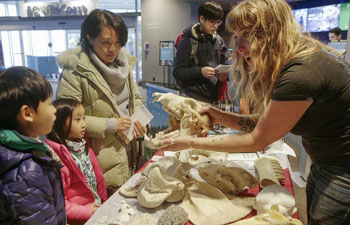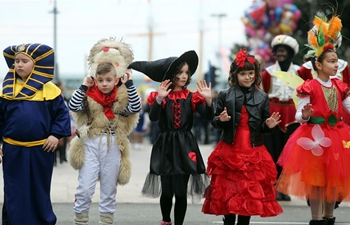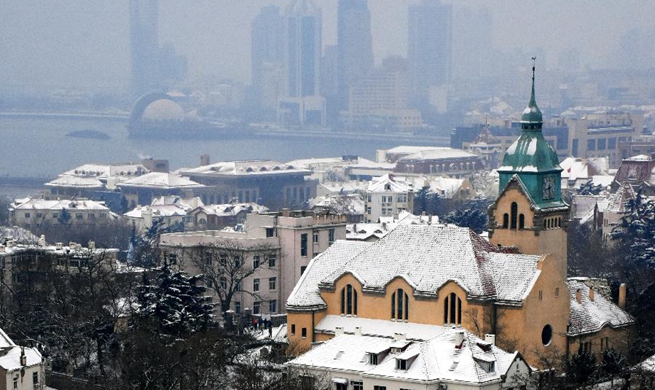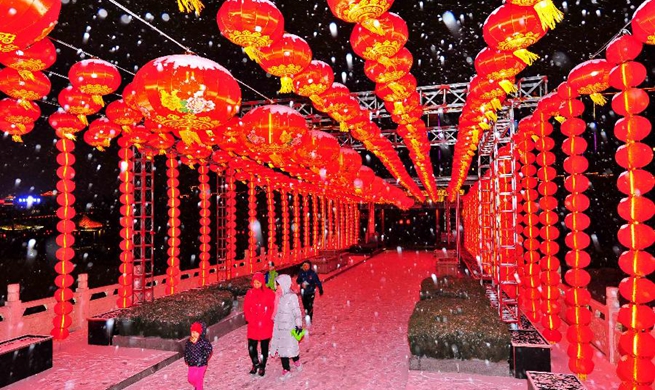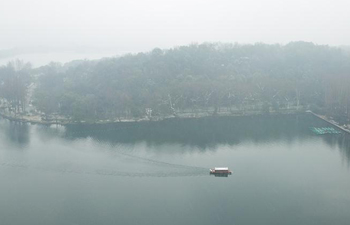by Raimundo Urrechaga
HAVANA, Jan. 27 (Xinhua) -- To understand Latin American culture and reality, some writers have made suggestions of turning to Cuba's Casa de las Americas literary prize for more reference.
This year, writers from Cuba, Argentina, Barbados and Brazil will be awarded in the six genres in the 59th Casa de las Americas literary prize that started in mid January, during which 200 literary works from different countries are competing.
For almost six decades, the literary prize, one of Latin America's oldest and most prestigious awards, has brought together authors committed to presenting the region's complex and diverse reality through various literary genres.
Since 1960, the award has been aiming at encouraging and promoting the works of both new and experienced Latin American writers who reserve their roots with fascinating and moving tales, poems and novels.
Those who over the years have won the prize in different categories have been committed to showcasing the richness and authenticity of the continent.
According to Puerto Rican writer Marta Aponte, a member of this year's jury for short story writing, the contest has succeeded despite the island's economic difficulties, because it distinguishes and gives voice to authors who honor their culture, traditions and environment.
"It's a very necessary prize for our times. We live in a globalized world and large publishing houses seek to publish only best sellers or novels by established authors," Aponte told Xinhua in a recent interview.
Argentine writer and journalist Ariel Urquiza said the contest avoids the kind of "mainstream" authors who are in demand by commercial publishing houses.
"Here we have other kinds of stories and tales, profound and intelligent. The Casa de las Americas literary award seeks to reward what is different and alternative," he said.
Urquiza added that he was honored to be a member of a recognized group of Latin American writers and authors that will determine this year's winners.
"Reading the works in the contest will allow us to have an idea of how Latin American literature is evolving, which issues authors are covering the most, and will give us an overview of where the region's literature is heading," he said.
Argentine professor and novelist Saul Sosnowsky, also a jury member in this 59th edition of the prize, said the Casa de las Americas award is a literary benchmark, not just within the region but throughout the world.
"The works we see here are a reference, a vision of what is happening in Latin America. These stories mostly say things that politicians can't state and in that sense it is essential to continue cultivating good literature in our continent," he told Xinhua.
Initially called the "Hispanic-American Literary Contest," the prize changed its name after Brazilian authors writing in Portuguese began to participate in 1964.
Early editions of the award featured traditional genres like poetry, short stories, novels and essays, but the prize has been broadened to include other categories, such as personal narratives, children's books, indigenous literature, and Caribbean authors from English and French speaking nations.
"Those categories don't exist in any other literary prize in Latin America," said Urquiza, adding that "English and French speaking nations are also part of our region, of our identity and their literature is necessary for understanding the reality of Latin America and the Caribbean."
Thanks to the effort to give voice to the region's diverse figures, Guatemalan indigenous leader and Nobel Peace Prize winner Rigoberta Menchu came to prominence after her book "I, Rigoberta Menchu" won the Casa de las Americas prize.





